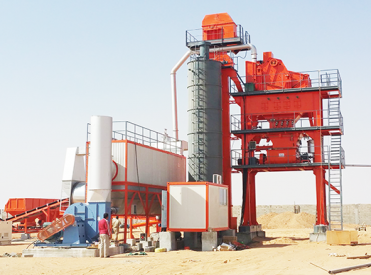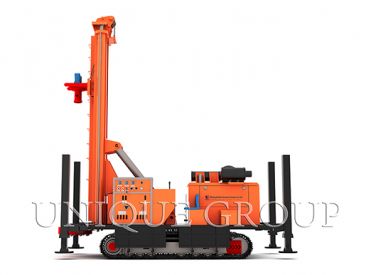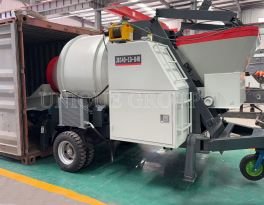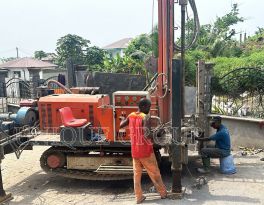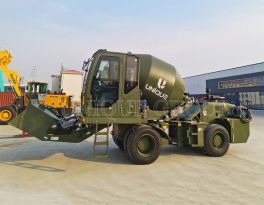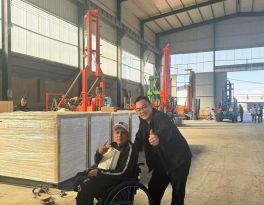
Selecting the right equipment is a critical decision that directly impacts the profitability, efficiency, and environmental footprint of a construction project. When it comes to concrete mixing pumps, one of the most fundamental choices you'll face is between a diesel-powered model and an electric-powered one. This isn't just a question of fuel type; it's a strategic decision that affects operating costs, usability, and project suitability.
There is no one-size-fits-all answer. The "best" choice depends on a careful analysis of your specific working conditions and priorities. Let's break down the key factors to consider.
1. Power Source and Operational Cost
This is the most significant differentiator.
Diesel Concrete Mixing Pump: The primary advantage of a diesel engine is its complete independence. It generates its own power, making it the undisputed champion for remote sites, new developments, and any location where grid power is unavailable or unreliable. You can take it anywhere and start working. However, this freedom comes at a cost. Diesel fuel is expensive, and consumption is continuous during operation, leading to higher long-term operational expenses. Maintenance involves regular engine oil changes, filter replacements, and more complex mechanical upkeep.
Electric Concrete Mixing Pump: An electric pump must be plugged into a powerful grid connection. This limits its use to sites where such power is readily available and stable. Its supreme advantage is operational cost. Electricity is significantly cheaper than diesel per unit of energy. Once connected, the cost of running an electric pump is a fraction of its diesel counterpart. They are also mechanically simpler with no engine, meaning reduced maintenance needs and costs (no engine oil, filters, or fuel system issues).
Verdict: Choose Diesel for remote sites without grid power. Choose Electric for cost-efficiency on sites with established power infrastructure.
2. Environmental Impact and Noise Pollution
Diesel: Diesel engines produce exhaust emissions, including particulate matter, nitrogen oxides, and carbon dioxide. This can be a major issue for indoor projects, environmentally sensitive areas, or sites with strict air quality regulations. They are also notoriously loud, creating noise pollution that can lead to complaints in residential or urban areas and requiring hearing protection for workers.
Electric: Electric pumps produce zero on-site emissions. This makes them the only choice for indoor applications (like tunnels, basements, or enclosed structures), subways, mines and green building projects. They are also remarkably quiet during operation, improving communication on site and minimizing noise-related disturbances to surrounding communities.
Verdict: Electric is the clear winner for environmental and noise considerations. Diesel's emissions and noise are its biggest drawbacks in regulated or sensitive areas.
3. Performance and Power Output
Diesel: Diesel engines are known for high torque and robust power output, which can be advantageous for pumping over very long distances or handling tough, low-slump concrete mixes. They are workhorses built for heavy-duty, continuous operation under demanding conditions.
Electric: Modern electric motors provide more than enough power for the vast majority of concrete pumping applications. They offer instant torque and incredibly smooth, consistent operation. For standard pours and the majority of high-rise and commercial projects, their performance is on par with, if not superior to, diesel models due to their operational consistency.
Verdict: For extreme, specialized applications, Diesel might have an edge. For 95% of projects, Electric performance is perfectly adequate and exceptionally reliable.
4. Initial Investment and Long-Term Value
Diesel: The initial purchase price of a diesel pump is often lower than an equivalent electric model. This lower upfront cost can be attractive for smaller businesses.
Electric: While the initial investment may be higher, the dramatically lower operating costs mean the total cost of ownership over the machine's lifespan is often far lower. The savings on fuel alone can quickly offset the higher purchase price. Furthermore, as global regulations on emissions tighten, diesel machinery faces potential restrictions and devaluation, while electric equipment is future-proof.
Verdict: Diesel wins on initial price. Electric wins on long-term value and return on investment.
The Final Decision: It’s About Your Project Site
Ask yourself these questions:
Is there a reliable, high-capacity power grid on site? If YES, an electric pump will save you substantial money.
Is the project indoors, in a city, or with strict noise/environmental rules? If YES, an electric pump is mandatory.
Is the site remote, new, or without power infrastructure? If YES, a diesel pump is your only viable option.
What is the total workload? For high-volume, long-duration projects, the fuel savings of an electric model become enormous.
Ultimately, the smartest strategy is to partner with a manufacturer that offers both technologies, allowing you to select the perfect tool for each job. This is where a company like Zhengzhou Unique Industrial Equipment Co., Ltd. (UNIQUEMAC) provides a crucial advantage.
UNIQUEMAC offers a comprehensive range of both high-performance diesel concrete mixing pumps and innovative electric concrete mixing pumps. Their expertise allows them to guide customers through this exact decision-making process, ensuring you get a machine that aligns with your operational needs, budget, and project goals. By choosing a supplier like UNIQUEMAC, you aren't just buying a machine; you're gaining a strategic partner for your business's growth.
Weigh your options carefully. If you need independence and mobility, diesel is your power. If you prioritize lower costs, cleaner operation, and a quieter site, then going electric is the current that will drive your project forward.
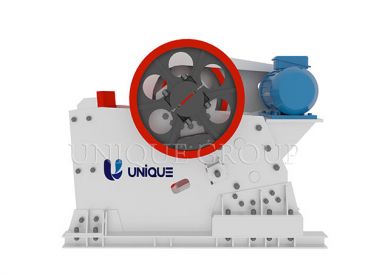
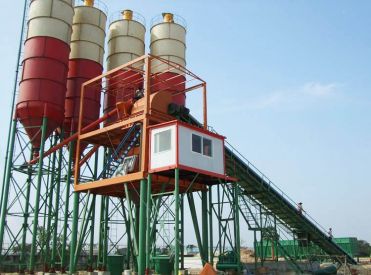
.jpg)
